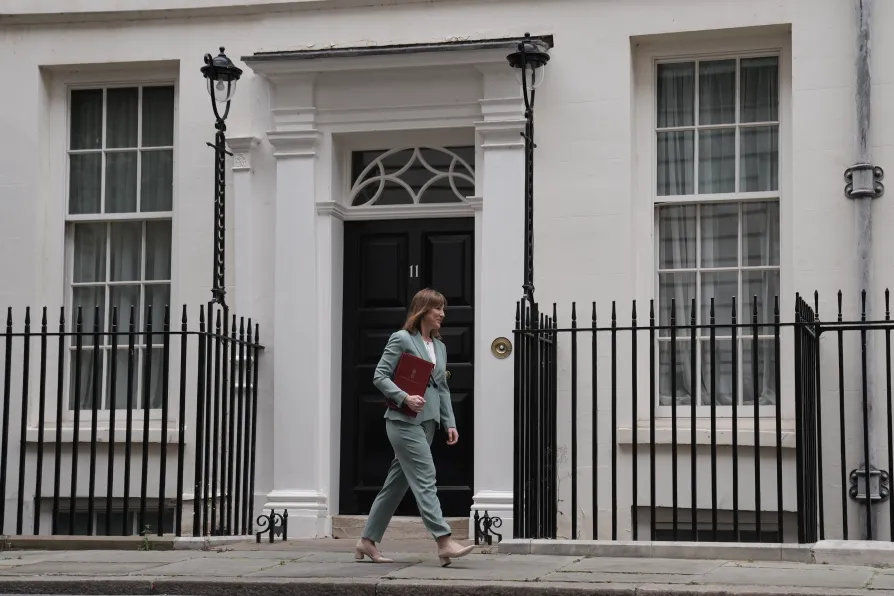
 Chancellor of the Exchequer Rachel Reeves leaves 11 Downing Street, London, ahead of delivering her spending review in the House of Commons, June 11, 2025
Chancellor of the Exchequer Rachel Reeves leaves 11 Downing Street, London, ahead of delivering her spending review in the House of Commons, June 11, 2025
RACHEL REEVES stressed in her spending review that she is rejecting austerity.
It’s a sign of how keen ministers are to rebut accusations that the party is implementing “austerity 2.0,” which brought thousands onto the streets of London last weekend.
The headline spending increases are not just designed to appease increasingly restless MPs panicked by Reform UK’s now consistent polling lead. The PM and Chancellor see that promises to reduce NHS waiting lists and build 1.5 million homes will not be met without serious investment, hence the cash injections for the health service and social housing.
Funds to fix crumbling school buildings, another very visible symbol of the damage the Conservatives did to essential infrastructure, are again designed to differentiate Labour from its predecessor. These shifts are naturally welcomed by unions, which have been among those campaigning for Labour to recognise the crisis across public services and the scale of investment needed.
Here Labour still falls short — which is why the demand for a wealth tax raised by multiple unions (including the two largest, Unison and Unite) in their reactions to Reeves is so important.
Austerity is class war: the years of degrading services and wages shrinking in real terms were the price working-class people paid for the narrowing concentration of wealth at the top.
Arresting the decline means reversing the process: winning above-inflation pay awards year on year as part of a plan to restore incomes to their real values of a decade ago, which means we need pay increases of between a fifth and a quarter for many public servants.
That would address a recruitment and retention crisis driven by the under-valuation of what during Covid were termed “key workers.”
But doing so means taxing the rich instead of “robbing Peter to pay Paul,” as Unite characterises a spending review which combines investment in some departments with real-terms cuts to others, and leaves untouched Labour attacks on some of the poorest in society — by maintaining the two-child benefit cap and savage cuts to social security payments for the disabled.
Even in the NHS, it is unclear that Reeves’s 3 per cent funding increase (after inflation) will be able to arrest the wave of layoffs sweeping hospital trusts since NHS England chief executive Sir Jim Mackey announced a “financial reset” involving billions in “savings.”
In other sectors — local government is a glaring one — tiny funding adjustments are inadequate given so many councils face bankruptcy and municipal services are being cut back.
A joined-up strategy to fix broken services and raise working-class incomes has to involve redistribution of wealth. And a class-based strategy raises wider international questions.
The ballooning wealth at the top is not just a British phenomenon. The wealth of the world’s billionaires grew by $2 trillion in 2024, three times faster than the year before. Yet 44 per cent of the world population live below the poverty line as defined by the World Bank.
This yawning, unsustainable inequality is a product of a global capitalist system which is plundering Third World resources, accelerating towards ecological breakdown and climate chaos, and lurching toward a new world war.
Britain’s rearmament, which has been welcomed by unions representing workers in the sector, is at the behest of an erratic and dangerous US administration leading that drive to war — in the cause of maintaining this unjust and exploitative world order in the face of a gathering revolt across the global South and a rising China.
Beyond immediate questions on how rising military spending affects other budgets, we have to ask what we are funding the British military to do — and the answer is not one socialists can support.
The interests of British workers involve ending capitalism and imperialism, and we need to build a stronger peace movement to make and win that argument across organised labour.










